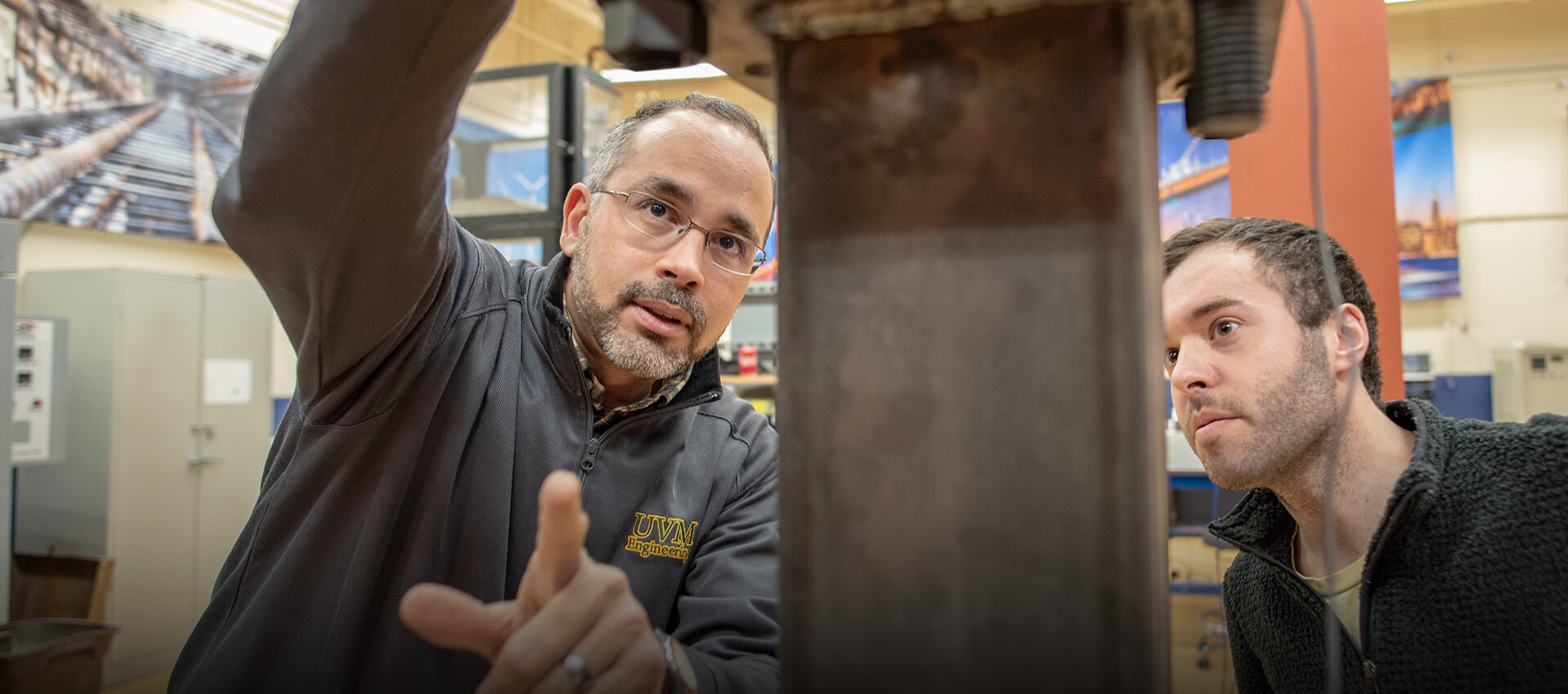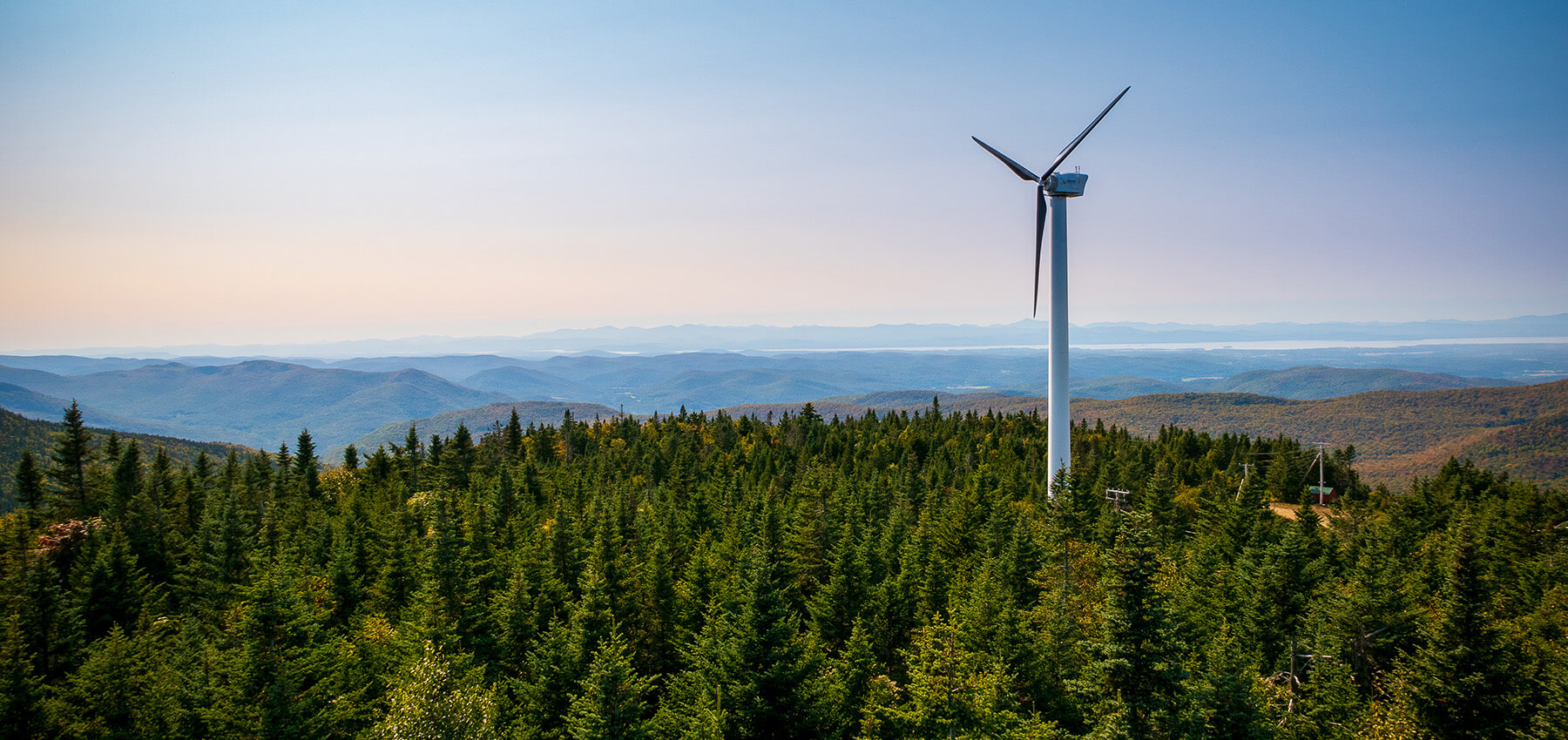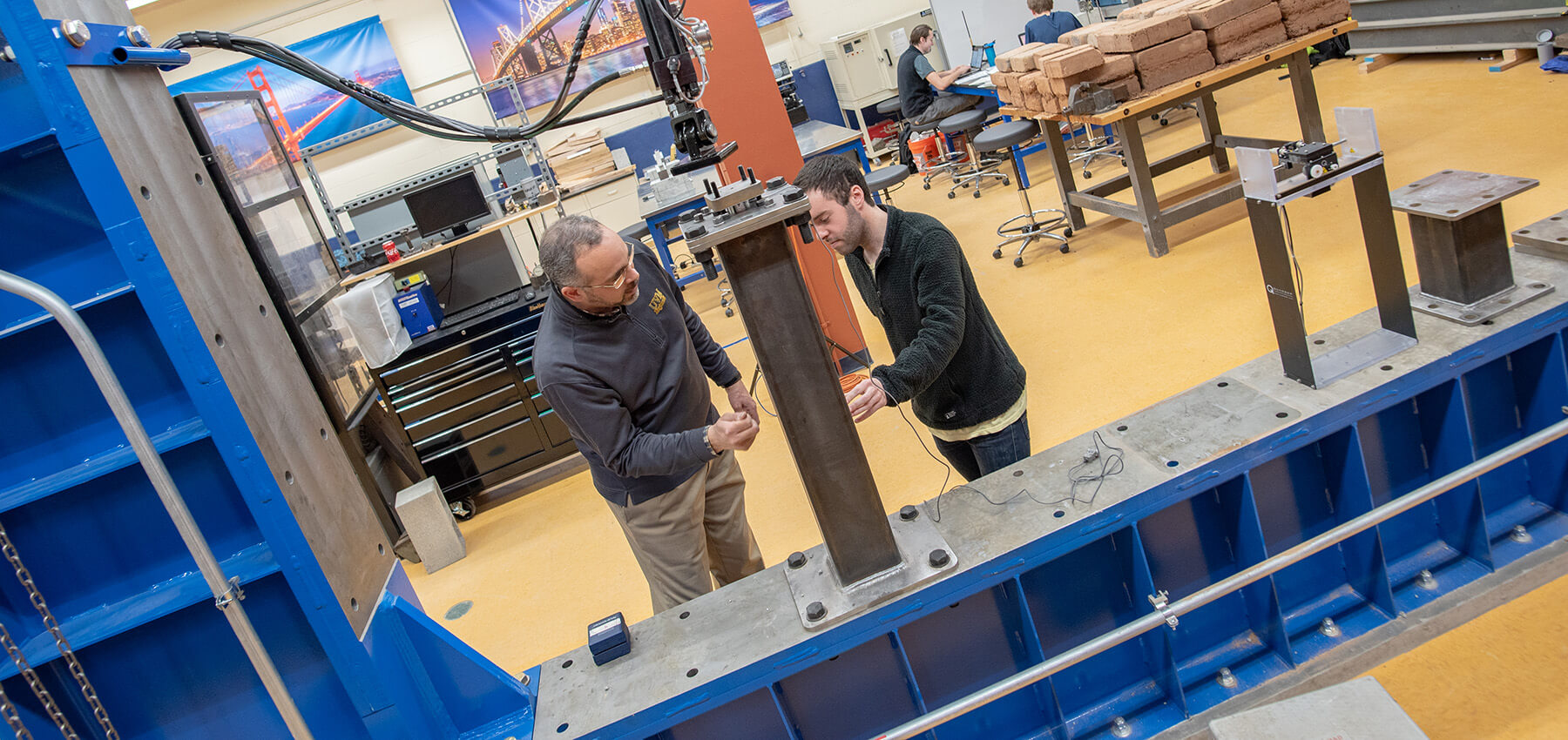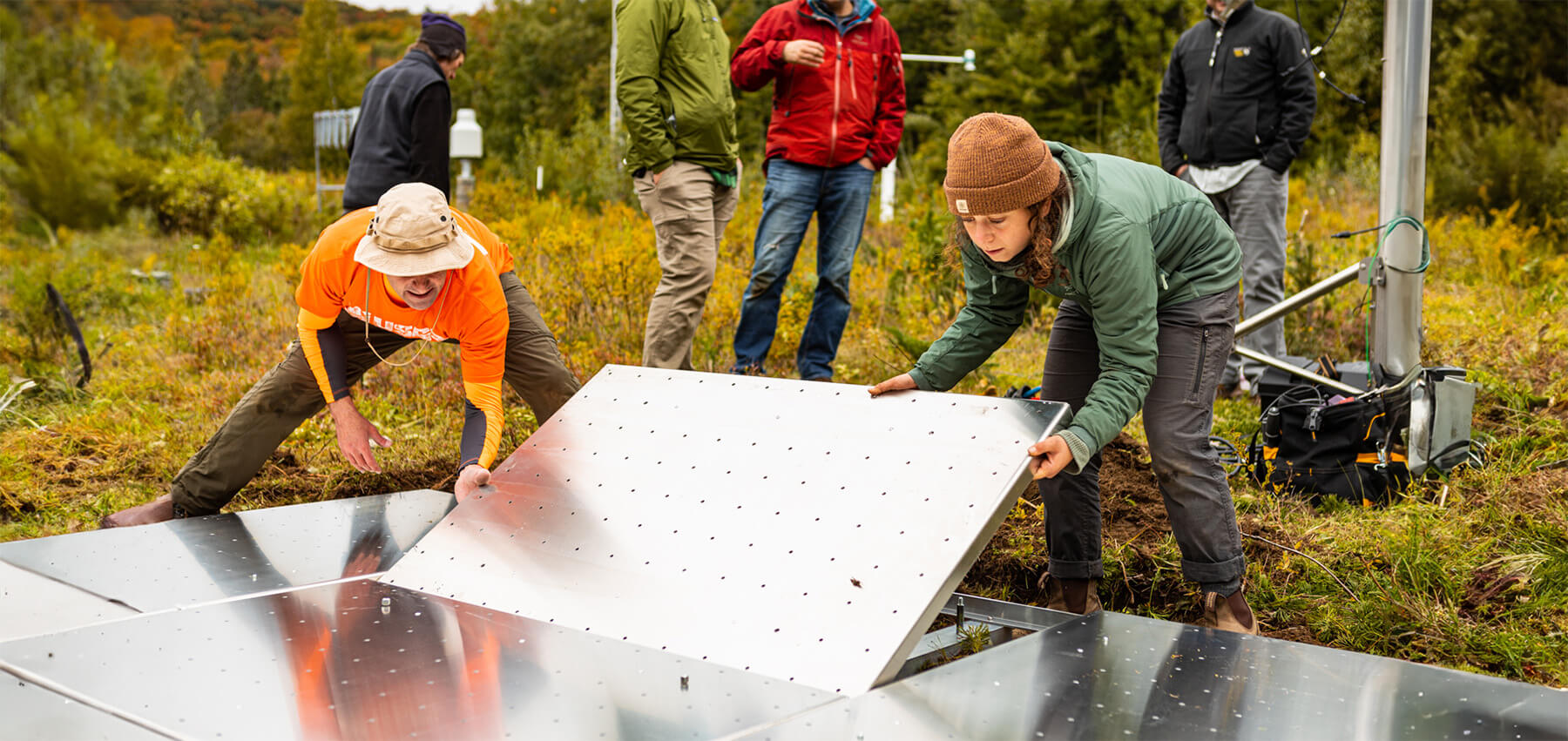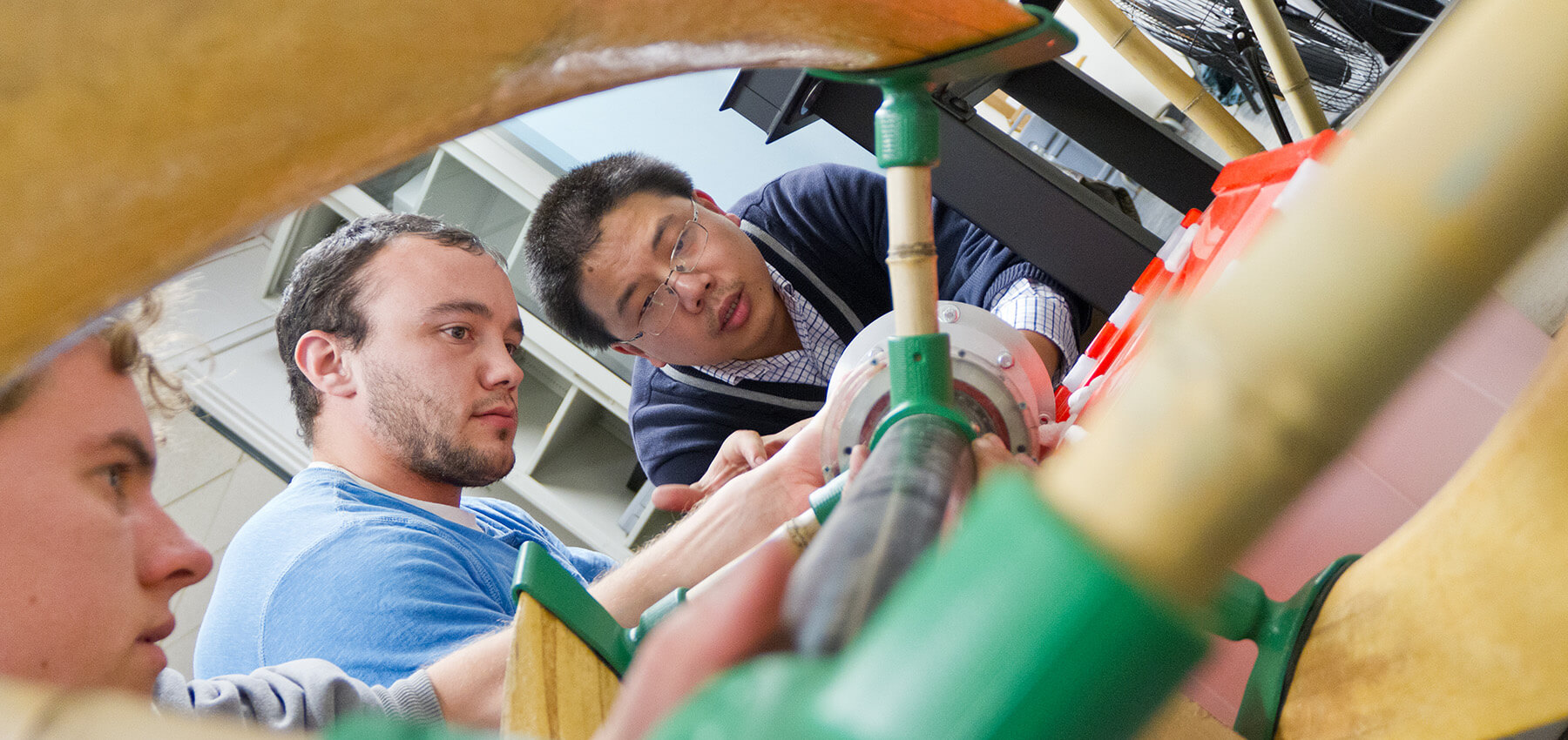Program Overview
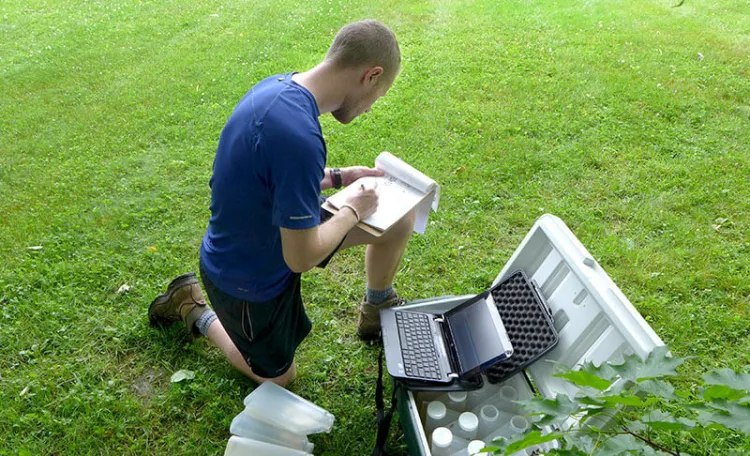
Environmental Engineers are involved in efforts related to clean water, waste disposal, water and air pollution control, reducing generation and release of contaminants, remediation of contaminated sites, clean energy, stormwater management, and green infrastructure, to name a few. One significant distinguishing feature of Environmental Engineering (as opposed to Environmental Studies or Environmental Science) is the very applied nature and emphasis on design – of new technology to reduce generation and release of contaminants or novel ways to quantify system sustainability in our complex world. Engineers are often called upon to apply their scientific and design expertise to evaluate and then reduce the risk of pollutant exposure to chemical and biological contaminants, the effects of drought or excessive rainfall on human-natural systems or quantify the environmental effects of industrial processes. Environmental engineers may work in the private sector at consulting firms or in the public sector for local, state, or federal government in jobs that involve being outside, field monitoring, data analysis, and computer-aided analysis and design. An environmental engineering degree also provides a great foundation to build other careers such as management, public administration, teaching, law, and medicine.
